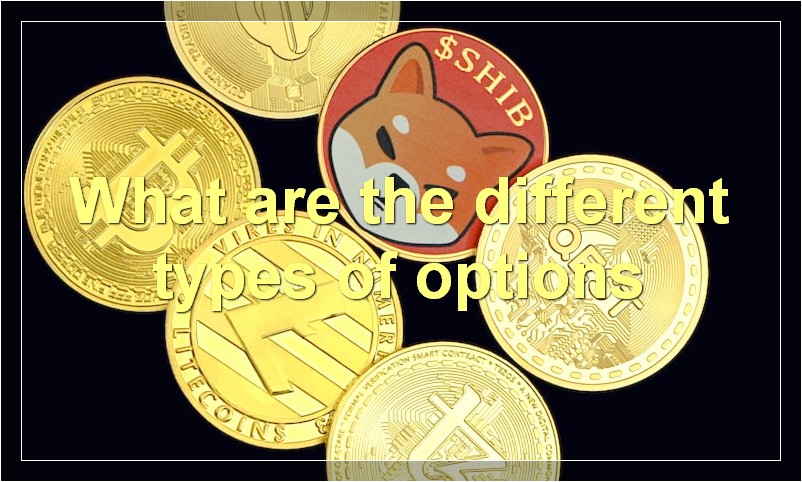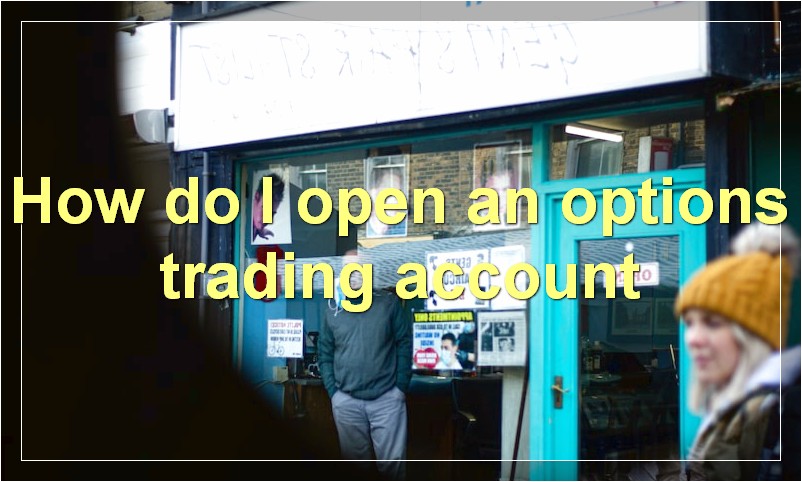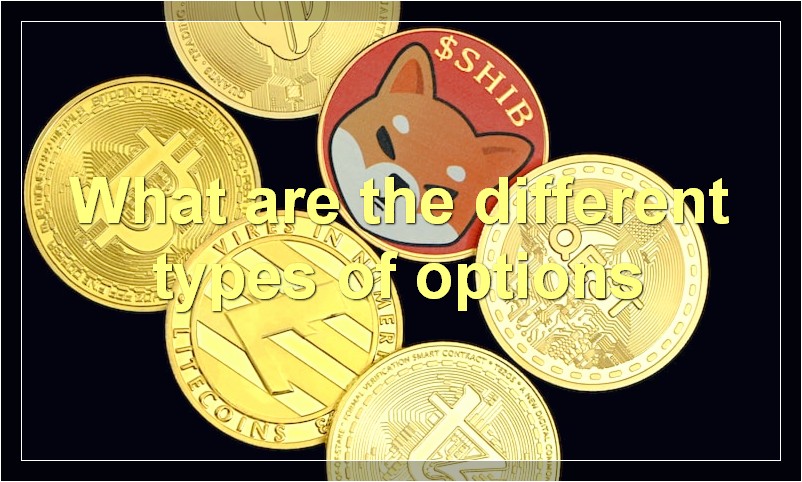If you’re looking to get started in options trading, this introduction is for you. We’ll cover the basics of what options are, how they work, and some of the key strategies for trading them. By the end, you’ll have a good foundation for getting started in this exciting and potentially lucrative world.
What is an option
An option is a contract that gives the buyer the right, but not the obligation, to buy or sell an underlying asset at a specified price on or before a certain date. An option is a financial derivative that represents a contract sold by one party (the option writer) to another party (the option holder). The contract offers the buyer the right, but not the obligation, to buy (call) or sell (put) the underlying asset at a specified price (the strike price) on or before a certain date (the expiration date).
What are the different types of options

There are two main types of options: call options and put options.
A call option gives the holder the right, but not the obligation, to buy an underlying asset at a specified price on or before a certain date. A put option gives the holder the right, but not the obligation, to sell an underlying asset at a specified price on or before a certain date.
Options are often used as a hedging tool by investors to protect against downside risk in the underlying asset. For example, if an investor owns shares of stock in XYZ company, they may purchase a put option to hedge against the risk of the stock price falling.
Options can also be used to speculate on the future direction of an asset price. For example, if an investor believes that the stock price of XYZ company will increase, they may purchase a call option.
What are the benefits and risks of options trading
An option is a contract that gives the holder the right, but not the obligation, to buy or sell an underlying asset at a specified price on or before a certain date. Options are traded on exchanges such as the New York Stock Exchange and the Chicago Board Options Exchange.
The key benefit of options trading is that it provides investors with greater flexibility and control over their investments. Options can be used to hedge against losses, speculate on future price movements, or generate income.
However, options trading also comes with risks. The most common risk is known as time decay, which refers to the loss in value of an option as it approaches its expiration date. Other risks include volatility risk and interest rate risk.
What are some basic option strategies
Option strategies are basically the different ways that you can trade options. The most common option strategy is buying a call, which is when you believe the stock will go up, or buying a put, which is when you believe the stock will go down. There are also more complex option strategies, such as straddles and Iron Condors.
How can I choose an options broker
Choosing an options broker can be a daunting task, but it doesn’t have to be. With a little research and careful consideration, you can find a broker that’s well suited to your needs and trading style.
Here are a few things to keep in mind when choosing an options broker:
1. Regulation. Make sure the broker you’re considering is regulated by a reputable financial authority. This will ensure that the broker is held to strict financial standards and that your money is safe.
2. Fees. Be sure to compare the fees charged by different brokers. Some may charge higher commissions for trades, while others may have lower fees but require higher minimum deposits. Choose the broker that charges fees that are most suitable for your trading style and budget.
3. Platforms and tools. Take a look at the platforms and tools offered by different brokers. Some may offer more sophisticated trading platforms with advanced charting and analysis tools, while others may offer more basic platforms. Consider what type of trader you are and choose a broker that offers the platforms and tools you need to trade successfully.
4. Customer service. When you’re looking for a broker, be sure to check out their customer service. You’ll want to choose a broker that is responsive to your questions and concerns and that provides excellent customer service overall.
5. Bonus offers. Many brokers offer bonus offers to new clients, such as cash back or free trades. While these offers can be tempting, be sure to read the fine print carefully before signing up for anything. Make sure you understand the terms and conditions of the bonus offer and whether it’s something that you’ll actually be able to use.
Choosing an options broker doesn’t have to be difficult. By keeping these things in mind, you can find a broker that’s well suited to your needs and trading style.
How do I open an options trading account

If you’re interested in options trading, you’ll need to open an account with a broker that offers options trading. Some brokers require that you open a margin account, which allows you to trade with borrowed money.
Before you open an account, research the broker’s commission fees and whether they offer direct access to options markets. You’ll also want to find out what type of software platform the broker uses for trading.
Once you’ve chosen a broker, you can open an account by completing an application and providing documentation such as your driver’s license or passport. Once your account is approved, you’ll be able to start trading options.
What documents do I need to start trading options
There are a few key documents you’ll need to start trading options. Here’s a brief overview of what you’ll need:
1. A brokerage account. You’ll need to open an account with a broker that offers options trading.
2. Approval to trade options. Your broker will likely require you to complete an options application and be approved for options trading before you can begin.
3. An understanding of options. Before trading options, you should have a solid understanding of how they work and the risks involved. There are plenty of resources available online and in libraries to help you learn about options.
4. A trading plan. Once you’ve decided to start trading options, it’s important to develop a plan. This should include your investment goals, risk tolerance, and strategies for entering and exiting trades.
5. patience! Options trading can be exciting, but it’s also important to remember that it takes time to learn the ropes and become successful at it. Don’t get discouraged if your first few trades don’t go your way – keep at it and you’ll eventually start seeing profits.
What is the process of trading options
When it comes to trading options, there are a few things you need to know. First, you need to understand what options are and how they work. Second, you need to understand the different types of options and how they can be used. Finally, you need to understand the process of trading options and how to choose the right option for your needs.
Options are a type of financial derivative that gives the holder the right, but not the obligation, to buy or sell an underlying asset at a specified price on or before a certain date. The underlying asset can be shares in a company, a commodity such as gold or oil, or a currency.
There are two main types of options: call options and put options. Call options give the holder the right to buy the underlying asset, while put options give the holder the right to sell the underlying asset. Options can be traded on an exchange or over-the-counter (OTC).
The process of trading options begins with choosing the right option for your needs. You will need to consider the type of option, the expiration date, the strike price, and the premium. Once you have chosen the right option, you will need to place an order with a broker. Your broker will then execute the trade on your behalf.
What are some common mistakes made by options traders
There are a few common mistakes that options traders make that can cost them dearly. One is not understanding the difference between call options and put options. Another is not knowing how to properly manage risk. And finally, many options traders don’t have a clear exit strategy, which can lead to big losses.
What resources are available to help me learn more about options trading
When it comes to options trading, there are plenty of resources available to help you learn more. There are books, online courses, and even personal coaching programs that can teach you the ins and outs of options trading.
The best way to find the right resource for you is to figure out what your learning style is and then look for resources that match that. If you learn best by doing, then online courses or personal coaching might be the best fit. If you like to read and do research, then books might be a better option.
No matter what your learning style is, there are options trading resources out there that can help you become a smarter and more profitable trader.

